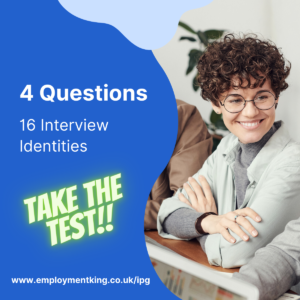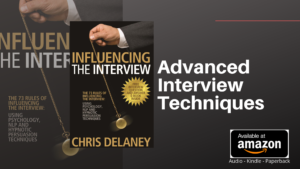HGV Driver Interview Questions.
For a HGV driver interview, applicants will be asked around 10 questions during a 45-minute interview.
The employer is looking to recruit someone who is reliable, efficient and holds the correct driving license for the size of vehicle they will be required to drive.
HGV drivers earn on average between £20-£40,000 annually depending on the driving experience an applicant possesses. As demand for drivers continues to rise, so does the average pay.
Interview questions will, in the main, focus on how the HGV driver can show that they will be able to transport goods, safely and securely, from one place to another (including overseas for some roles).
Heavy good vehicle drivers spend a lot of time on their own, which requires a certain personality type and work ethic. With this in mind, interviewers will ask questions about an applicant’s best working style.
Below is a list of job interview questions and an explanation of how to answer each question, for an HGV role to help drivers prepare for any upcoming job interviews.

10 Interview Questions for HGV Driver Interviews.
Below is a list of commonly asked driver job interview questions.
Each questions comes with an explanation of how to answer each of the questions.
Job applicants need to utilize their own experience to make their answer unique to themselves, while promoting their own strengths, skills and qualities.

Can you tell me a little bit about yourself?
Many employers ask ‘tell me a little about you?’ as an ‘open’ question to help generate a conversation. The goal here, is to put the interviewee at ease.
Each answer will be different. Some job applicants will have qualities, skills and experiences from one industry that are relevant to a driving role. And other candidates will be experienced drives.
Each driving job also varies. From the size of the truck, van or HGV to the role. A full-time driving position or a blended warehouse/driver position.
Some jobs will require driving abroad, others moving heavy goods and some multiple drops in local areas.
For all driving jobs there are generic skills that are required.
As the required qualities of a long and short distance lorry driver require an employee to be self-reliant, a self-starter and to enjoy their own company, you can answer the opening interview question about who you are by talking about your personal qualities and why driving (and working alone) is an ideal job role for you.
Towards the end of the interview answer, explain the skills you possess required for the position you are applying for.
What is your experience as a driver?
When asked about driving experience give detail.
Initially, give an overall summary of your combined driving experience and break this down by each role.
An example of this would be:
‘I have been driving for the past 20 years, the first 5 years were spent driving transit vans delivering parcels to homes and offices. I gained an HGV license and spent 10 years delivering palletised goods in and around the UK and for the past 5 years, I have worked driving goods across Europe….’
Next add in any specific details relevant to the job role: ‘I am fluent in X languages which helps when communicating with businesses across Europe”
If you possess any additional qualification, an FLT license, as an example you can mention these qualifications here as well.
The goal here is to be seen employable, that you possess the required experience to complete the business as usual tasks.
What do you think are the duties of an HGV driver?
The more specific you answer this question to higher you will score during the structured job interview.
With this in mind, you can list a full day duties or frame this as an example job interview answer.
When answering this question ensure to mention the following key duties:
- Planning and setting the route of goods to ensure the best use of time.
- Checking the goods against the delivery not and looking for damaged or missing parcels.
- Ensuring all goods are secure during transit.
- Checking traffic reports on route and making route adjustments when necessary.
- Completing all paperwork and receiving a signature for goods received at the delivery location.
When listing duties, give some real life examples: “One of the duties is X, an example of me doing X is when I was working at Y. (Situation/duty) happened, and I (actions taken) which resulted in (outcome).”
What is the process for taking on a new load?
Process questions are asked when an organisation has had issues with this process area. IE if you are asked about a process for checking goods-in, it is highly likely that, previously, errors have been made.
The question, then, is to check your level of knowledge and experience to ensure you, once hired, wouldn’t make any errors with this particular part of the job role.
With the ‘new load process’ example, you would answer this question systematically, starting from the point you, as a driver, would receive the task:
- Check the delivery note; load quantity, load weight – against maximum load the vehicle can take, pick up time, delivery location (checking the duration and traffic reports)
- On arrival to the depot; check the security of load, good quantity against the delivery note and a quality check of the goods. Discussing the delivery with the warehouse manager.
- A final double-check of goods vs delivery note
Why is H&S so important for a driver?
Health and safety in the logistics industry are highly important.
When discussing the health and safety process for a delivery or HGV driver discuss the H&S rules for 3 key areas:
- Depot pick-up
- Driving long distances
- Warehouse drop-off
Ensure you explain how you read up on the H&S rules for each individual country or organisation you deliver to.
To answer the question:
- State the importance of H&S safety
- Discuss specific H&S rules for the 3 areas above
- Give an example of following H&S processes
How often would you take a break?
Depending on the vehicle you drive differed from the number of legal breaks you have to legally take.
Ensure you know the legal requirements as a drive and state this as fact.
How do you stay motivated when working alone?
As an experienced driver, hopefully, you do enjoy working alone or as part of a 2 person team.
When answering this question, simply list why you enjoy working alone. You might include:
- I’m a natural introvert
- I have always been a self-starter
- I enjoy the process of moving goods from one place to another
Talk also about your personal values and what motivates you. Employers here want to confirm that a driving job, while working alone, wouldn’t be a stress inducer.
How would you handle a warehouse manager who wants to rush the loading of goods due to time restrictions?
Several job interview questions will be framed as real-life situations.
With all ‘situational’ interview questions, answer these with a real-life example.
First, give a detailed overview of the problem you faced – in this example how an aggressive warehouse manager insisted that the goods to be loaded faster than was possible.
Next, explain how you responded, professionally, to the warehouse manager’s demands.
Finally, give a positive outcome to the situation you handled with professionalism.
What would you do if the radio/news alerted you to a heavy car jam up ahead?
As discussed above, situational job interview questions are best answered with an example answer.
A traffic jam situation has happened to all drivers, who know that their manager and/or customer still require the goods to be delivered on time.
When giving a real-life example as the interview answer, ensure to make a point that at no point during the situation would you break the law as this would have a negative implementation for the company and for yourself.
Instead, explain your process which could include:
- Having a traffic alert system built into the sat-nav.
- Having voice control sat-nav to request a new route
- Checking new duration compared to waiting in the jam
- Picking either option
- Delivering the goods on time

Do you have any questions for me?
- What is the number of deliveries required to be made per day?
- What locations/countries do you deliver to?
- What type of goods do you deliver?
- What technology do you employ to assist drivers?
- Do you have your own break-down/mechanics team?
- How long does a driver stay within the organisation for?









